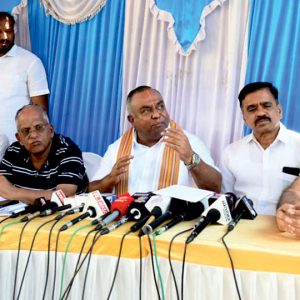Not many seem to have turned their attention to the issue of population control raised by the incumbent Prime Minister in his address on the occasion of this year’s Independence Day delivered before the large gathering, including school-bound children by their impressive turnout, on the open space facing the iconic Red Fort in the National Capital Region of Delhi. Unarguably, keeping the unabated annual increment to the nation’s headcount, estimated at nearly 15 million, in check ranks at the top of a plethora of concerns riding on the back of, nay bugging, successive Governments. That concern on population control, like the proverbial army uniform fitting every soldier in general but no one in particular, concerns every Indian citizen in general but no adult of reproductive age bracket in particular. Given the feature of all too familiar lack of concern about virtually any concerns both presented by the land’s alert media and talked about among the concerned members of society at large, governing this country is no joke.
American short story writer, William Sydney Porter, better known by his pen name O. Henry (1862-1910) coined the expression banana republic in 1901 based on his experiences in the economically exploited Honduras of the late 1800s. In Political Science, the term describes a politically unstable country, much like India following the end of colonial rule and coming under the influence of despots at the helm, barring exceptions.
The Constitution of India, as the script of the country’s supreme law, laying down the framework of fundamental political code, structure, procedures, powers and duties of Government institutions, spelling out fundamental rights embellished with 395 Articles and 12 Schedules, although modified through nearly 120 amendments doesn’t seem to explicitly or otherwise state the agenda in the nature of concerns that directly or indirectly relate to the well-being of the land’s people at large, not to forget the last citizen, symbolising the deprived sections of the country’s 135-crore headcount, whose number is showing no sign of coming down. The law-making task has been tackled by successive Governments but the track record of Governments implementing the laws and that of the people at large in complying with those laws don’t need to be elaborated except remarking that on both counts the scenario is of great concern.
To make a long story short, in matters of managing the natural resources, keeping living spaces to avoid illnesses, giving up habits that harm health, discipline in public life (in words, deeds and thoughts), marshalling energy constructively to sustain socio-economic progress of the diaspora and so on, the state of unconcern for concerns is appalling.








Recent Comments